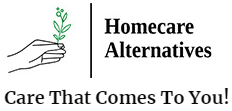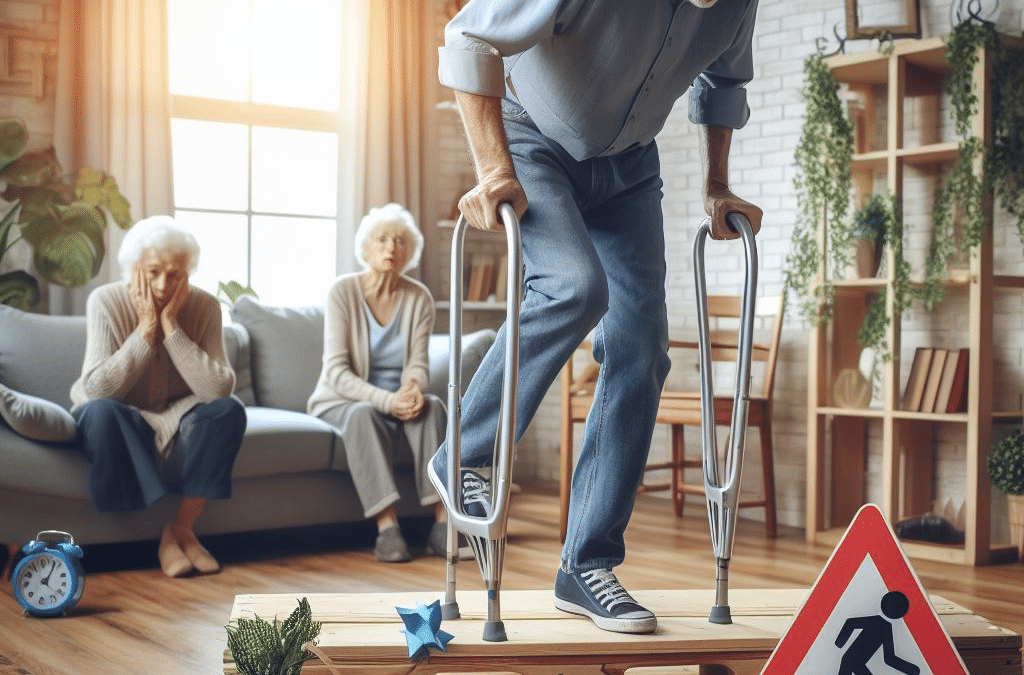As our loved ones age, their risk of falling increases significantly. Falls can lead to serious injuries, including hip fractures, head trauma, and reduced mobility. As caregivers, it’s crucial to understand the dangers of falls and take proactive steps to prevent them. In this article, we’ll explore strategies to keep older adults safe and reduce their fall risk.
Falls are a leading cause of injury and hospitalization among older adults. Each year, millions of seniors suffer from fall-related injuries, affecting their independence and quality of life.
Sad Statistics
- More than one in four older adults experience a fall each year.
- Falls are the leading cause of both fatal and non-fatal injuries in people aged 65 and over.
- Around 3 million older adults visit emergency rooms every year due to fall-related injuries.
- Over 800,000 individuals are hospitalized annually after a fall, often due to broken hips or traumatic brain injuries.
The Consequences of Falls
Falls can have a lasting impact on an older person’s life:
- Injuries: The most common injuries from falls include broken bones (hips, wrists, arms), head trauma, and severe lacerations. These injuries can require extended hospital stays and rehabilitation.
- Loss of Independence: A significant fall can reduce mobility and lead to an increased reliance on others for basic needs.
- Fear of Falling: The psychological toll of a fall can be immense. Many older adults develop a fear of falling again, which limits their activities and social interactions. This can result in isolation and depression.
- Increased Mortality Risk: Falls that lead to serious injuries or hospitalization can put older adults at an increased risk of death.
Prevention is Key
The good news is that most falls are preventable. Here’s how to reduce your risk if you’re an older adult, or help a loved one stay safe:
- Exercise Regularly: Strength and balance exercises improve coordination and muscle strength. Engage in activities like walking, tai chi, or strength training.
- Review Medications: Talk to your doctor about any medications that might increase your dizziness or make you drowsy.
- Eye Exams: Get regular eye exams to ensure your vision is as good as possible.
- Make the Home Safer: Remove trip hazards like rugs and clutter, ensure good lighting, and install grab bars in the bathroom and near steps.
Don’t Ignore Falls
If you are an older adult who has fallen, even if you don’t seem injured, it’s crucial to see your doctor. They can assess the situation, provide treatment, and help identify strategies to prevent future falls.
Spread the Word
By raising awareness about the dangers of falls among the elderly, we can encourage preventative measures and help older adults maintain their independence and quality of life.
Preventing Falls: More Tips for Caregivers
- Conduct a Home Safety Assessment One of the first steps caregivers can take to prevent falls is to conduct a thorough assessment of the home environment. This includes identifying and addressing potential hazards such as loose rugs, uneven flooring, and poor lighting. Installing grab bars in the bathroom and handrails on staircases can also improve safety.
- Encourage Regular Exercise Regular physical activity can help improve balance, strength, and flexibility, reducing the risk of falls. Encourage your loved one to participate in exercises that focus on balance and coordination, such as tai chi or yoga. Even simple activities like walking or gardening can help improve overall mobility.
- Review Medications Regularly It’s important to review your loved one’s medications regularly with their healthcare provider to identify any potential side effects that may increase the risk of falls. Be aware of medications that cause dizziness or drowsiness and discuss alternative options with the healthcare provider if necessary.
- Ensure Proper Vision and Hearing Poor vision and hearing can significantly impact balance and coordination, increasing the risk of falls. Encourage regular eye exams and hearing tests to ensure that any vision or hearing impairments are addressed promptly.
- Provide Support and Assistance Offering support and assistance to your loved one can help them feel more confident and secure, especially when navigating challenging environments or situations. Encourage the use of mobility aids such as canes or walkers if needed, and be available to lend a helping hand when necessary.
- Promote Healthy Lifestyle Choices Encourage your loved one to maintain a healthy lifestyle by eating a balanced diet, staying hydrated, and getting an adequate amount of sleep. Avoiding alcohol and tobacco can also help reduce the risk of falls.
- Stay Connected and Engaged Social isolation and loneliness can contribute to a decline in physical and mental health, increasing the risk of falls. Encourage your loved one to stay connected with friends, family, and community activities to maintain a sense of belonging and purpose.
As caregivers at Homecare Alternatives in Gainesville FL, it’s our responsibility to prioritize the safety and well-being of our elderly loved ones. By understanding the risks of falls and implementing preventive measures, we can help reduce the likelihood of serious injuries and promote independence and quality of life. By fostering a supportive and proactive environment, we can empower older adults to age gracefully and safely in their own homes. Gelder

